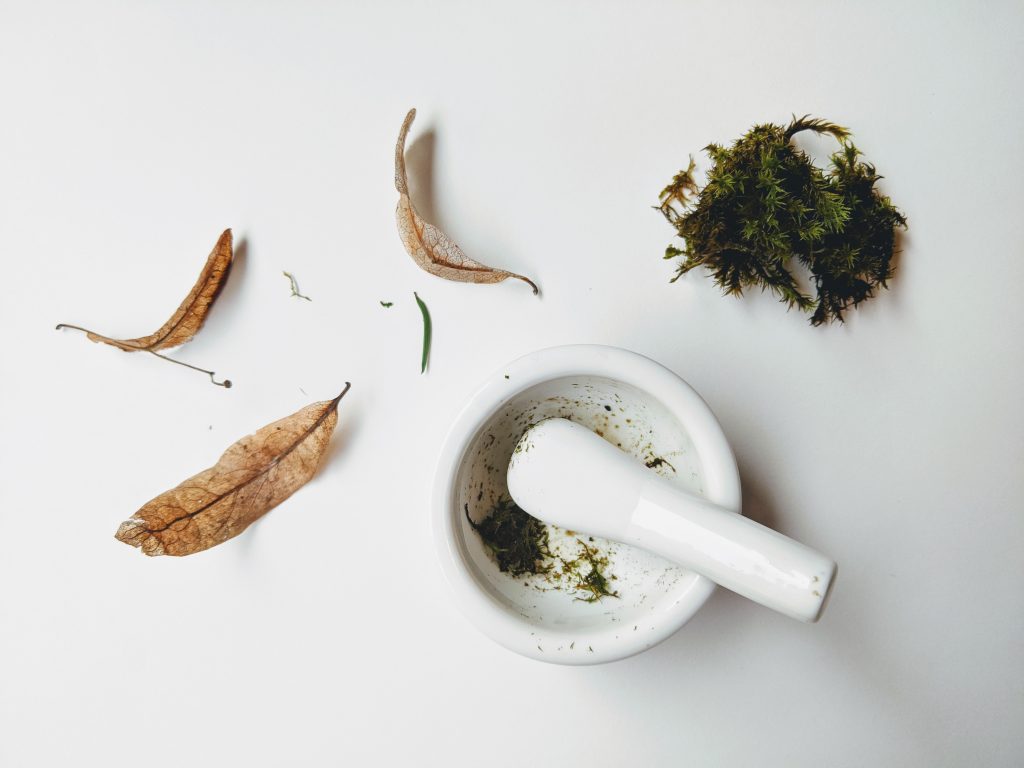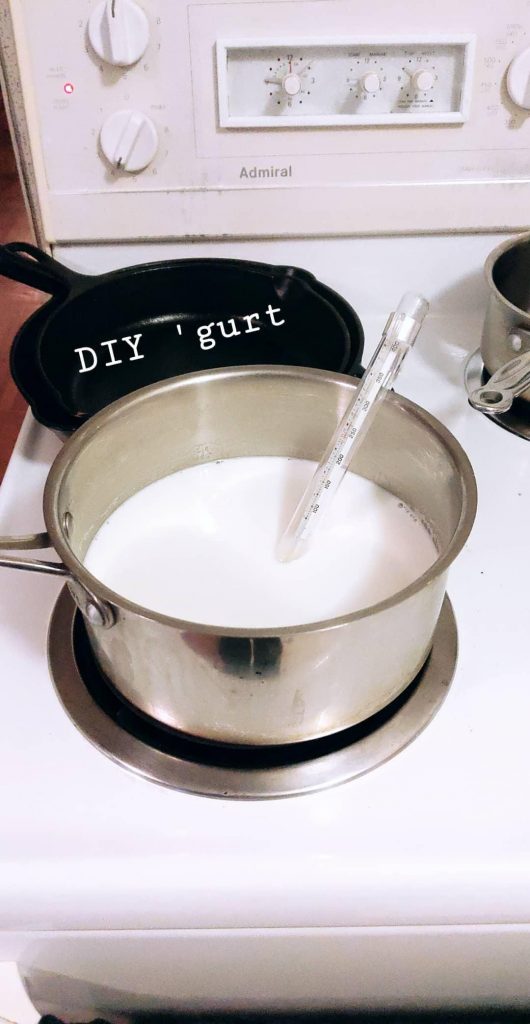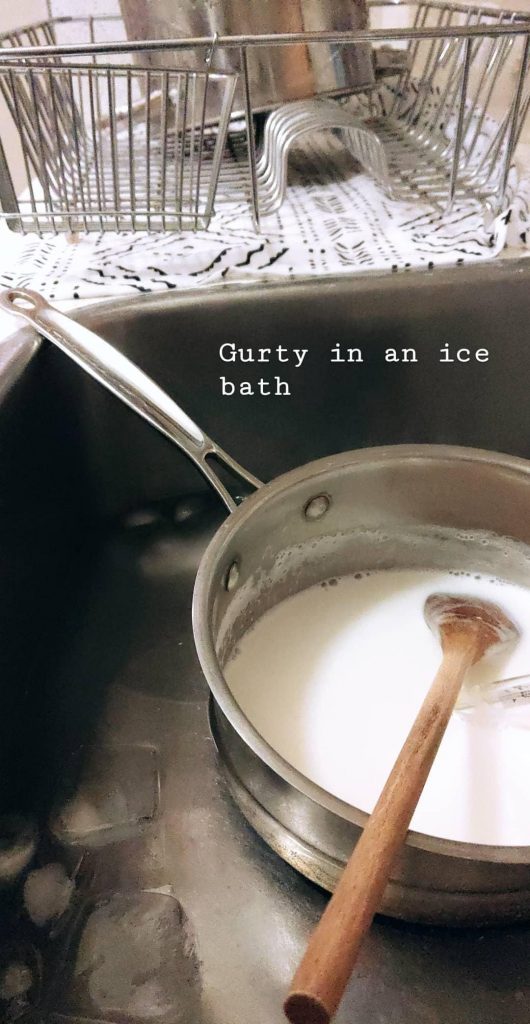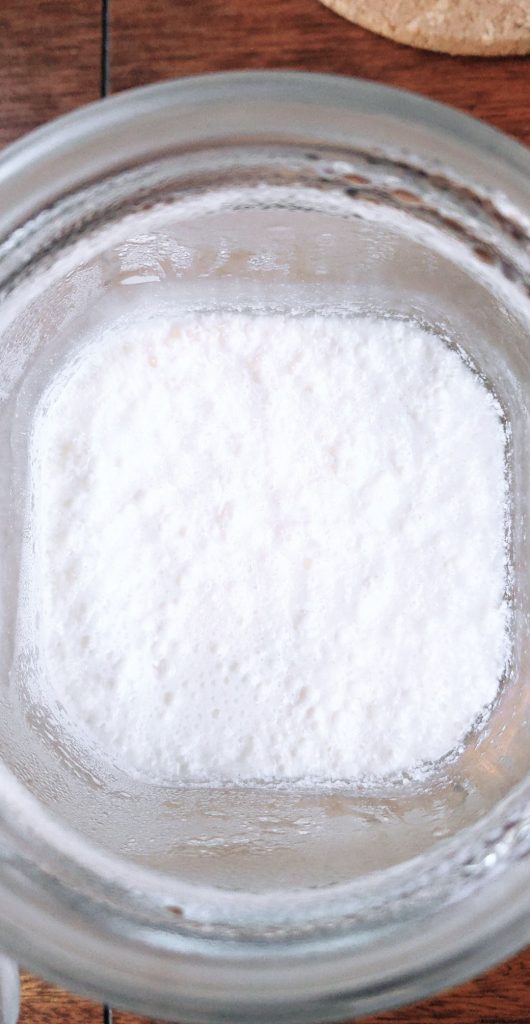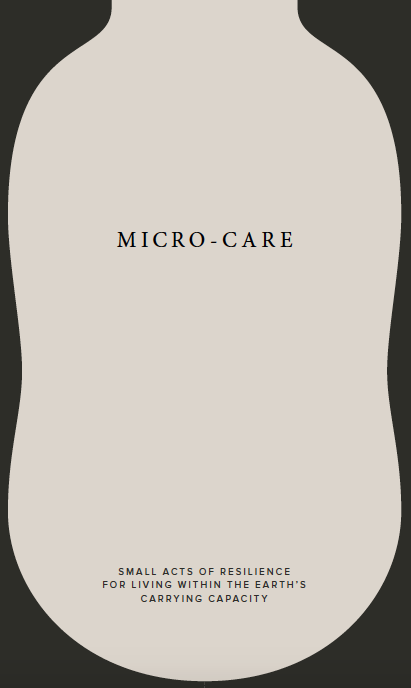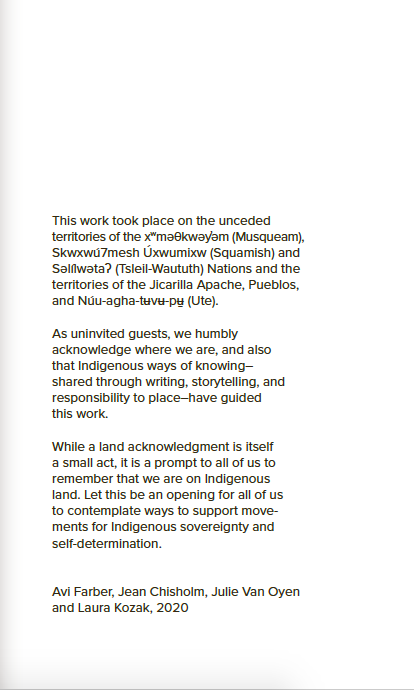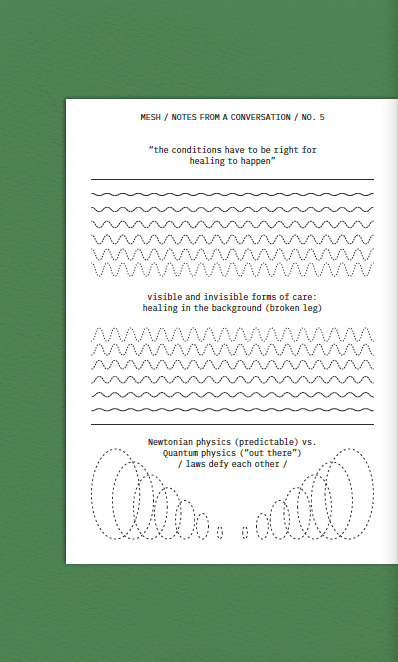I began my MDes with an interest in multispecies interactions. Specifically, increasing opportunity for intentional and caring human/more-than-human interactions. I explored ways of doing this via sensory sketches and other methods (below).
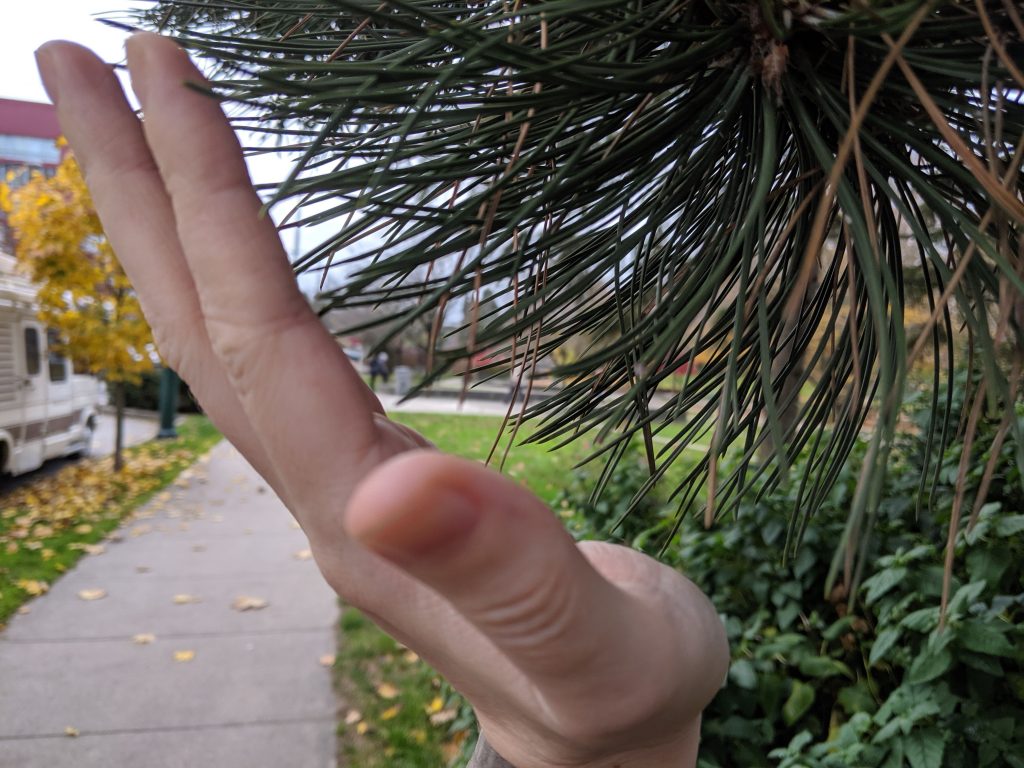
Microbial Encounters
These explorations evolved into interactions with the multispecies communities present in ferments. I worked with various species of bacteria, yeasts and other fungi to co-create fermented cabbage and yogurt.
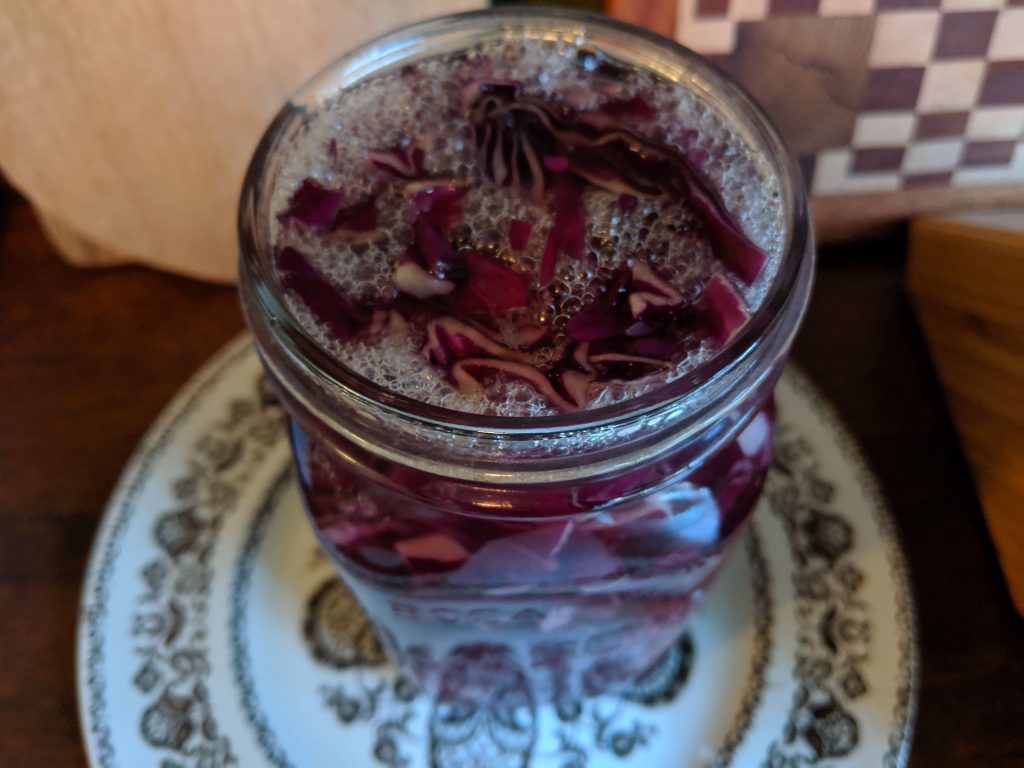
These various explorations attuned me to the multitudinous ways we live with other species, often unrecognized, in our daily lives. Humans and their daily doings, their life-making and eating well, are in constant relationship with other beings (Haraway, 2016).
I was gifted a sourdough starter culture by a colleague, who had received it from their friend (whom I have never met). I began to think about how I was now interacting and eating-with not only the ferment but also the humans who’d cared for it along the way – remnants of their microbiomes would still be present in the iteration of the ferment which was now cared for by me (Hey, 2017).
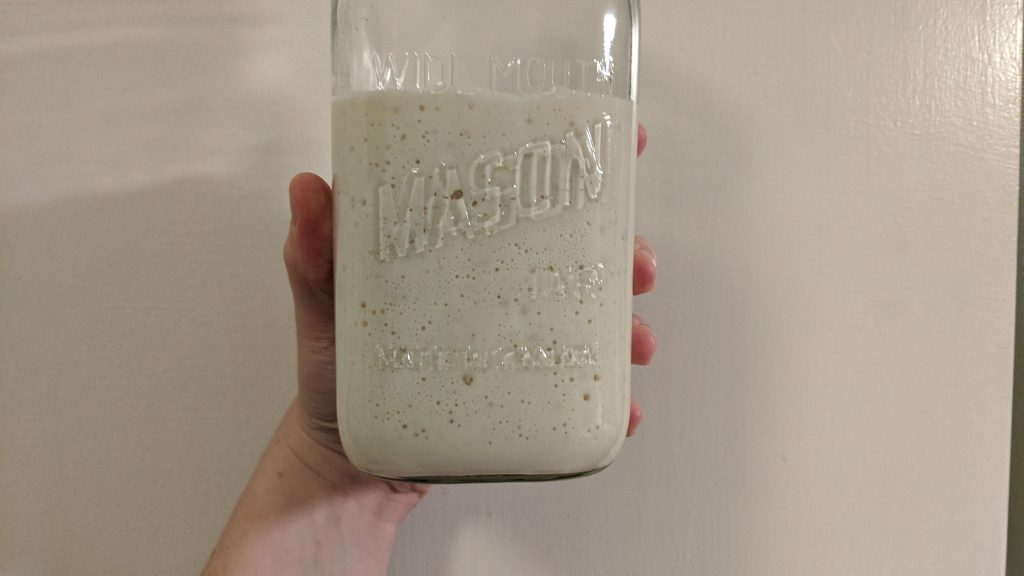
As the months passed, I collected two more starters. One all the way from Normandy, France, which had been “alive” since the 1940’s, and one very young wild ferment started in a colleague’s home. On a weekly (and sometimes daily) basis I cared for them by way of halving and feeding them, in order to maintain a fresh supply of food for the yeasts. These activities allowed a balanced and symbiotic community of yeasts and bacteria to live together in the culture.
I fed them, and they fed me (vis à vis sourdough pancakes, muffins and bread) – and the microbes in my gut – as the world fell into a global pandemic crisis. As we sheltered in place and my world shrank to the size of my home, I thought more and more about cycles and practices of care and maintenance as a way to live-well together during trying times (de la Bellacasa, 2017).
Micro Care
In April of 2020, myself and three other designers (Laura Kozak, Jean Chisholm and Avi Farber) assembled to answer a call from the Canadian Association of Graduate Studies. The call was to respond to a Policy Horizons Canada report called The Next Generation of Emerging Global Challenges: Living within the Earth’s Carrying Capacity, produced to “identify the next generation of global challenges for consideration by SSHRC”. This call took place as we and the rest of the world scrambled to come to terms with a global pandemic.
How could we, from the humble makeshift workspaces of our kitchens and bedrooms, generate something in response? And how could we do this while managing our own mental health and well-being through a time where everything felt like quicksand?
Excerpt from Micro Care: Small Acts of Resilience for Living Within the Earth’s Carrying Capacity
As we gathered together via remote video calls, and expressed the feelings of urgency and nervousness we felt, we landed on a way of working that could be nourishing in its lightness, and motivating in its emergence.
We documented and discussed modest actions of resilience and care for ourselves, each other and the systems surrounding us: our weekly discussions, secret instagram, and informally shared reading list themselves becoming a typology of care. Weekly calls evolved into reading and writing, and we let the project be led by our instincts through the spring of 2020, a period of time where each week felt new in tone; the result of almost-daily bombshells in the news.
Excerpt from Micro Care: Small Acts of Resilience for Living Within the Earth’s Carrying Capacity
Once the publication had been developed with contributions by ourselves and members of our networks, I was able to look back and see parallels between that emergent, non-hierarchical way of working and the ways in which I had been caring-with the multispecies ferments I’d been co-creating life with alongside this project.
Note: The full Micro Care publication can be accessed via the Libby Leshgold Publishing the Present digital archive.
References
De La Bellacasa, M. P. (2017). Matters of care : speculative ethics in more than human worlds. University Of Minnesota Press.
Haraway, D. (2016). Staying With The Trouble : Making Kin In The Chthulucene. Duke University Press.
Hey, M. (2017). Fermenting Communications: Fermentation Praxis as Interspecies Communication. In M. Tromble & P. Olynyk (Eds.) Interspecies Communication (pp. 149-157) Canada: Public.
